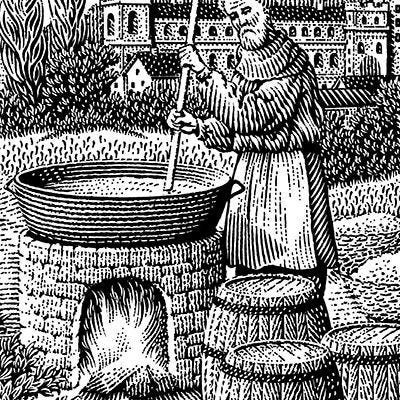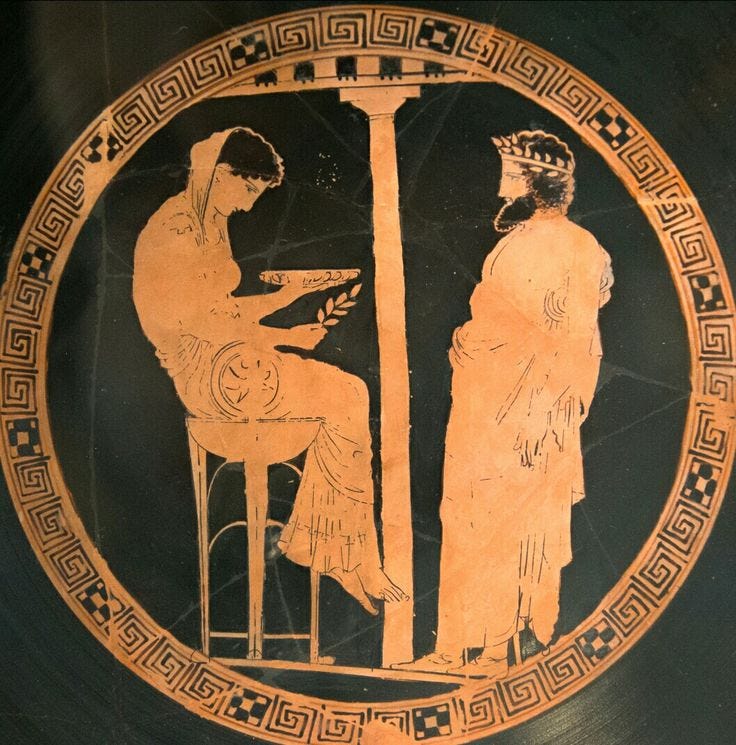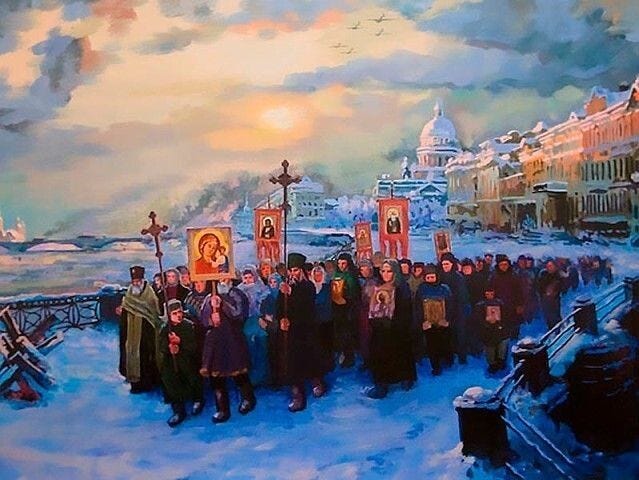Write & Lift is an ethos of personal and spiritual development through conscious physical exertion and practice of the writing craft. Through this effort to strengthen our bodies and minds, we become anti-fragile and self-respecting sovereign individuals. Through this effort, we may stand against untruth and evil and create a new culture of vitality, strength, and virtue.
Chemical Desecration
Medieval monks brewed beer in stone monasteries, chanting Gregorian hymns as they worked. Beer was sold to pilgrims and travelers, and given away to the poor as an act of charity. The drink served as a necessary safety filter for the often-contaminated water in the community. Public drunkenness was frowned upon and punished by fines, religious condemnation, and severe acts of humiliation. When consumed during feast days, the ale became part of a sacred gratitude ritual amongst the community that connected heaven and earth. The intoxication was deliberate, bounded by ritual, and shared.
Right now, in a basement apartment in Ohio, a 19-year-old crushes an OxyContin tablet into powder. He's alone, hunched over his phone watching YouTube tutorials on crypto trading—private relief from existential dread. The pharmaceutical company that made the pill has filed for bankruptcy after fueling an epidemic that killed 500,000 Americans.
In the pre-rationalist Western world, what we today call “drugs” served a purpose of mystical connection. The Oracle at Delphi inhaled vapors that were believed to bridge mortal and divine realms. The Eleusinian Mysteries—perhaps the most sacred ritual in Ancient Greece—centered around a psychoactive brew called kykeon that initiated participants into a metaphysical relationship with the Greek pantheon of gods. These weren't hidden practices but foundational institutions that sustained civilization for millennia.
Philosopher Mircea Eliade called these “hierophanies:” manifestations of the sacred that ordered both society and consciousness. The intoxicants were tools that facilitated connection to what theologian Rudolf Otto termed "the numinous.” That which transcends rational understanding and evokes both dread and fascination.
Christian mysticism continued this tradition through controlled alteration of the senses: the solemn passing of communion wine, incense clouds that altered perception in cathedrals, fasting that induced visionary states in desert ascetics, and even the practice of "divine intoxication" among medieval mystics like Hildegard of Bingen and Meister Eckhart, who used sensory deprivation, prayer, and ritual to access mystical states of union with God.
We only assume that these were primitive superstitions awaiting the enlightenment of modern science because the mystical worldview is alien to us. They were sophisticated frameworks and beliefs of consciousness development, embedded within cultural containers that gave them meaning and prevented their abuse.
What do we have now? A nation where 14.8% of adults are on antidepressants. Where fentanyl killed 107,000 Americans in 2023 alone. Where teenagers crush Adderall to snort in school bathrooms between classes. Where executives microdose LSD not for spiritual insight but to "optimize workflow."
The mystical lineage hasn't disappeared; it’s been desecrated.
Ceremonial Time vs. Consumption Time
In his classic work "The Sacred and the Profane," religious historian Mircea Eliade distinguished between sacred and profane time. Sacred time was cyclical, marked by ritual boundaries that connected participants to primordial events. Profane time was linear, homogenous, devoid of deeper meaning.
The medieval calendar was punctuated by feast days; sacred interruptions of ordinary time when communities gathered, shared food and drink, and renewed their collective identity through controlled celebration. Like the nearby monks, the village ale-wife or inkeeper was engaging in an act of community and religious service and reverence.
Traditional European societies spent nearly half their days in festivals, celebrations, and holy days. Not because they were lazy, but because they understood the psychological necessity of sacred time. Ordinary life can only be ordinary if, on occasion, it’s suspended for the extraordinary.
Today we live in a “burnout society.” Profane time never ends. Market exchanges never stop. Work follows us home on our devices. Leisure becomes either another productivity metric or numbing escape.
Our drug use reflects this temporal collapse. There's no sacred context, no ritual boundaries. Just consume whenever discomfort or friction arises.
I sat beside a woman at an airport bar a few years ago. She took a Klonopin with her cocktail before boarding the flight. She sat two rows over from me on the plane and when the flight attendant offered another drink, she said, "I shouldn't mix, but fuck it." Chemical blurring of an already blurred existence.
The Abbey and the Pharmacy
Sociologist Philip Rieff argued in his 1966 book "The Triumph of the Therapeutic" that modern society had replaced genuine spiritual authority with psychological management. We no longer seek transformation through communal ritual but adjustment through private medication.
Look at how we've institutionalized drug use. The sterile pharmacy counter. The bare-walled rehab facility. The psychiatric waiting room. The dealer's car in a Walmart parking lot. These are transactional places.








